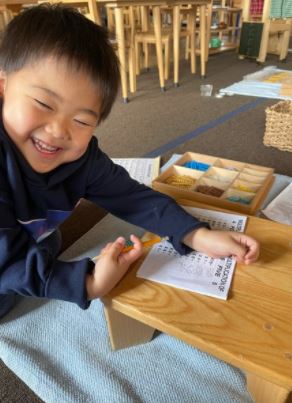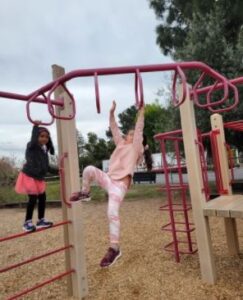
Each generation believes theirs is the greatest generation of all time. As a Gen Xer, I certainly think this. Our parents were Baby Boomers who, it’s safe to say were clearly irritated with the simple presence of Gen X as children if the number of times my own parents said things like children were to “be seen and not heard”. As a latch-key kid I was rarely seen nor heard by my parents. We became the “problem solving” generation primarily as a survival instinct while we raised ourselves.
So, what did we, the Gen Xer’s do? We made sure our children did not have to go through the same painful experiences we felt we went through. We became the parent generation that is super involved, overprotective and focused on making sure everything was fair. We thought we were setting the stage for our children to be wildly successful by clearing the obstacles in our children’s path.
One very common thing Gen X parents begin to do is praising our children for the smallest task. “You got up out of a chair, good job!”
Let’s talk about this phrase, “Good Job”.
You are likely wondering well, why? What’s so bad about saying “Good Job?”
In the Montessori classroom, guides don’t say “Good Job” to the children. This is done specifically to avoid placing judgment on a child’s work. As educators it is our hope that children do not spend a lot of time, whether in the Montessori classroom or at home, in search of an adult’s praise. We want them to choose and work with activities based on what interests them, because they want to do it – not because they feel they are pleasing an adult by doing so.
When we place a label like “good” or “bad” upon a task that a child is doing in order to satisfy their own developmental needs, we take the ownership away from them. All of a sudden, their work is about US and what WE think.
When a new milestone is reached, however small, many adults first reaction is often, ‘Good Job! That’s amazing! I’m so proud of you.’ While these are really positive things to say, one must consider the impact to your child’s development.
How can we respond to a child’s work in a way that acknowledges them, but doesn’t get in the way of their ownership over a task? What’s more powerful than “Good Job?”
How about, “You did it.”?
This simple phrase says so much. When spoken warmly and with a smile, a simple “You did it” allows the child to reflect upon their own accomplishments: “I did do it, didn’t I!”
And that sense of accomplishment and pride allows the child to move on to bigger things with a confidence in themselves that no “good job” could ever impart.
“Good Job” implies that we are the ones who judge our children’s work and behavior, rather than empowering them to reflect upon their own efforts.
Some examples of what to say/ask instead of “good job”:
These are only a handful of examples of a much more meaningful way to show your appreciation for your child’s efforts than a blanket “good job.”
There are so many meaningful, sincere ways to show our children that we appreciate what they do. The hardest part of branching out beyond “good job” is breaking the habit.
We are simply used to telling children “good job” for every little thing they do. While this is certainly meant to be kind and supportive, it can, in reality, take away from their sense of accomplishment and over time, can encourage them to seek out adult approval, rather than feeling satisfied with themselves.
Give it a try, maybe make a game of it for yourself. I call this game “Count out the paperclips”.

Pick a day, count how many times you say “good job”. Once you determine how many times you have said the phrase, count out as many paperclips or small objects you can hold in your pocket. Each time you say “good job” take one paper clip/object out of one pocket and place it in another pocket. At the end of the day, see how many paperclips/objects you have left. Decrease the amount of paperclips as time goes by. This is just a fun way to measure and laugh at yourself as you break this habit.
Now, start thinking about more specific ways to interact with your children. Let it be less adult-driven, and more about the intrinsic reward the child gets when he/she has an accomplishment, large or small.
With practice, you will form new habits and ways of encouraging children. It will feel more and more natural each time you try.
– Colleen
Parenting: Don’t Praise Your Children